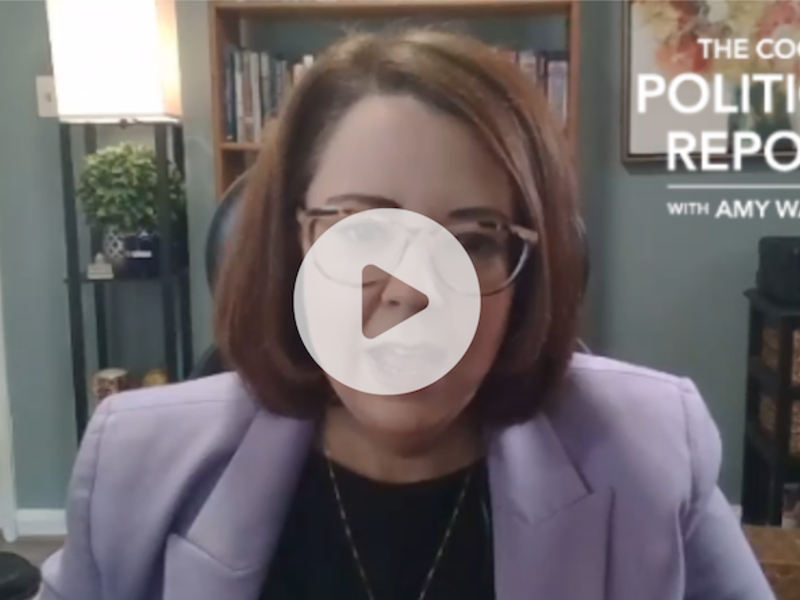
There is talk that President Biden and congressional Democrats will try to garner at least some support among Republicans for their pending infrastructure package. There are good reasons to be skeptical. While it is unlikely that there will be any meaningful amount of GOP support for a Democratic infrastructure-spending bill, pigs will fly long before Republicans would sign onto the revenue side of a package. In today’s political reality, a Republican supporting Democratic tax hikes is a nonstarter.
While Donald Trump has changed his mailing address from 1600 Pennsylvania Avenue to 1100 South Ocean Boulevard in Palm Beach, one thing that has not changed is the extent of partisanship today. Many people seem to think that partisanship is simply a behavior by politicians, their advisers, and people yelling on cable news. But in fact, the average voter could get a pretty good view of it by just looking in the mirror.
On Thursday, the Gallup Organization released an analysis by Jeffrey M. Jones of 2,937 adults the firm interviewed nationwide between Inauguration Day and March 31, looking at partisanship and how Americans are seeing Biden since he took office. Despite a more temperate personality and a less tumultuous style than his predecessor, Americans’ views of Biden 2-and-a-half months in are even more partisan than their views of Trump at the same juncture—and substantially more so than they were for Presidents Bill Clinton, George W. Bush, and Barack Obama.
Through the end of March:
- 96 percent of Democrats and independents who say they lean toward Democrats approved of Biden’s performance, compared to just 10 percent of Republicans and GOP-leaning independents. Fifty-five percent of pure independents (those who do not lean toward either party) approved of Biden.
- At this same point, Trump had the approval of 87 percent of Republicans, 10 percent of Democrats, and 38 percent of independents.
- For Obama, 89 percent of Democrats approved, against just 33 percent of Republicans. Independents split the difference with 61 percent.
- George W. Bush scored an 89 percent approval rating among Republicans, compared to 32 percent among Democrats and 55 percent from independents.
- Clinton held the approval of 78 percent of Democrats, 28 percent of Republicans, and 51 percent of independents.
Jones concludes: “The correspondence between one's party identification and evaluation of presidents early in their terms has never been greater than it is for Biden. Much of that is tied to the growing reluctance, if not unwillingness, of partisans to support a president of the other party, even during the honeymoon period of the presidency. Biden's nearly unanimous approval among Democrats, something neither Obama nor Clinton enjoyed, contributes to the larger party gaps for Biden.”
It also should be pointed out that the vast majority of independents lean toward one party or the other and can be relied upon to vote that way—they just have some deep-seated psychological need to call themselves independent when, functionally speaking, they are partisans.
In four new major national surveys from Pew Research, Monmouth University, Marist College, and Quinnipiac University, these partisan disparities come through glaringly. Independents are the tie-breakers on question after question, whether related to Biden, the seriousness of the pandemic and approaches to combat it, guns, policing, race relations, or voting rights.
Let’s take taxes as one example. When the Quinnipiac poll asked, “Do you support or oppose raising taxes on corporations?” 62 percent supported that tax increase and 31 percent opposed. Democrats supported the idea by a margin of 92 percent to 4 percent. Among Republicans, 59 percent were opposed and just 34 percent supported. Independents favored it by a 19-point margin, 55 to 36 percent.
On the question, “Do you support or oppose raising taxes on people earning more than $400,000 per year?” 64 percent of respondents overall supported and 31 percent were opposed. But among Democrats, support swelled to a margin of 91 percent to 7 percent. On the GOP side, 53 percent supported it, with 40 percent opposed. Sixty percent of independents supported it, with 36 percent opposed.
As the old saying goes, the person who defines the question determines the answer.
For the most part, Democratic voters are going to support the package proposed by Biden and Democratic leadership no matter what, with any defections only along the margins. Republicans likewise will oppose it en masse, again with few defections. In terms of public opinion, the ball game will come down to independents. If they believe that someone else will be picking up the tab for improving and modernizing infrastructure, both bricks and mortar as well as what is now called “human infrastructure,” they will be supportive. If they feel like they will be paying for it, don’t count on their support.
As the late Senate Finance Committee Chairman Russell Long—son of populist Louisiana governor and senator Huey Long—was fond of saying, “Don’t tax you, don’t tax me, tax that man behind that tree.”
This article was originally published in the National Journal on April 16, 2021.










Subscribe Today
Our subscribers have first access to individual race pages for each House, Senate and Governors race, which will include race ratings (each race is rated on a seven-point scale) and a narrative analysis pertaining to that race.